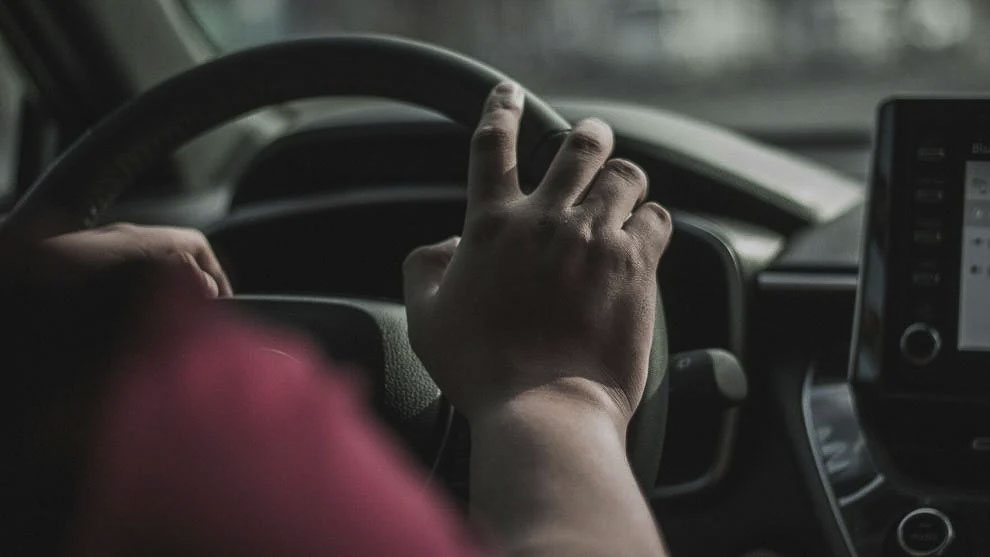
House Bill 2043 sponsored by Chair Jake Fey, D-Seattle, would raise the gas tax by 9 cents per gallon starting in July
TJ Martinell
The Center Square Washington
Washington state lawmakers are contemplating an increase in a variety of taxes and fees, including the gas tax and electric vehicle registration fee, to finance its proposed 2025-2027 transportation budget.
While local government advocates spoke in support of it at a Tuesday public hearing in the House Transportation Committee, one person testifying pushed back against a provision that would cause taxes and fees to automatically increase without a legislative vote.
“If you choose to adopt this proposal … the gas tax would be 64 cents [per gallon] in 2031,” lobbyist Greg Hannon told the committee. “Since 2003, the Legislature has raised the gas tax seven times from 23 cents to the current 49.4 cents.”
House Bill 2043 sponsored by Chair Jake Fey, D-Seattle, would raise the gas tax by 9 cents per gallon starting in July. However, the bill also indexes the tax rate to that of inflation. Although the rate of inflation is at 2.8% currently, in 2021 it was at 7%, according to the U.S. Inflation Calculator.
“Indexing breaks the link between budgeting and revenues,” Hannon said. “It also breaks the link of accountability of the Legislature to the public. With indexing, revenues flow regardless of the level of budget needs.”
However, he added that he wasn’t opposed to the bill itself.
“It is not opposition to a periodic increase in the gas tax by the legislature.,” Hannon explained. “The issue is putting the decision-making for a gas tax increase on automatic pilot with no affirmative action by our elected officials.”
In addition to a state gas tax increase, HB 2043 also does the following:
- Increases the additional state retail sales and use tax rate applied to motor vehicles from 0.3% to 1%.
- Placed an additional retail sales and use taxes on the value of non-commercial motor vehicles exceeding $50,000.
- Restricts the $75 transportation electrification registration fee only to electric vehicles, but ties the fee rate to inflation.
- Increases the current gross weight fees and passenger weight fees, which is also tied to inflation.
- Creates a highway use fee that would start in July 2026, to be paid upon registration of a vehicle with a fuel economy of 25 miles per gallon or greater and weighs 10,000 or less. The fee amount would vary based on estimated fuels that would be paid.
Exempt from the state highway use fee would vehicles subject to the $150 electric and plug-in hybrid vehicle fees, motorcycles, and vehicles with a maximum speed of 35 mph.
The highway user fee is similar to a proposal in House Bill 1921 also sponsored by Fey which sought to create a road usage charge program that would have been voluntary at first but then gradually required for more and more vehicles. However, the bill did not clear the Transportation Committee. The ranking minority member on it previously told The Center Square to expect a “watered down” version to advance as part of the new transportation budget.
Speaking in favor of the proposal was Carl Schroeder with the Washington Association of Cities, who told the committee they “recognize the need for additional revenues for our transportation systems.”
Schroeder supported tying fees and taxes to inflation “to ensure that our purchasing power can be maintained over time. We believe and hope that you all will also agree that it’s important to bring support for your local governments along as part of these periodic major transportation investments. Since we have an integrated system and the public needs all parties to be able to maintain our portions of the collective.”
Also supporting the bill was Kirk Hovenkotter, executive director of Transportation Choices Coalition. He told the committee that sales and use tax “is an exciting idea that helps address the impact of sales taxes that all heaviest on people with low incomes who need cars. By proposing a progressive tax structure, this luxury tax helps promote fair transportation of revenue for our state.”
Regarding the highway user fee, he said “as vehicles in Washington become more fuel efficient and don’t pay gas taxes at all, we need to ensure that those who use the roads the most pay their fair share to maintain and preserve our highways.”
This report was first published by The Center Square Washington.
Also read:
- WA governor pressed to veto $1.8B piece of Democrats’ tax billGrocers and restaurateurs are urging Gov. Ferguson to veto a surcharge in HB 2081 that they say will raise food prices statewide.
- Letter: ‘It’s said sarcasm is the lowest form of wit’Amboy resident Thomas Schenk criticizes Olympia’s use of “emergency clauses” and other legislative tactics that limit public participation.
- Opinion: What the 2025 legislature tells us about why Washington’s government keeps failingTodd Myers of the Washington Policy Center argues that Washington’s government fails because it resists humility, experimentation, and accountability in its policymaking.
- Town hall: Republicans say they are the ones fighting for the working classFour Republican legislators gathered in Battle Ground for a town hall to address rising taxes, education concerns, and their push to support Washington’s working class.
- Pooneh Gray Files for Vancouver City CouncilPooneh Gray has filed to run for Position #1 on the Vancouver City Council, emphasizing public safety, homelessness solutions, and community justice.











EVERY single person who is maxed out on being taxed should send a daily message to the Washington state legislature. Enough is enough.
https://leg.wa.gov/